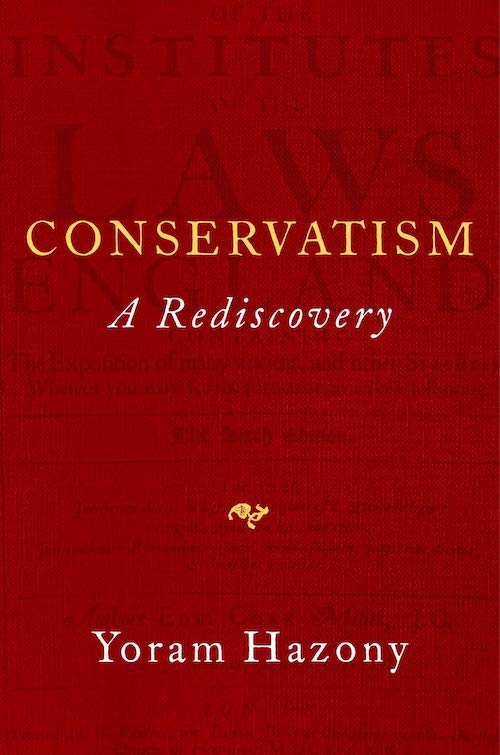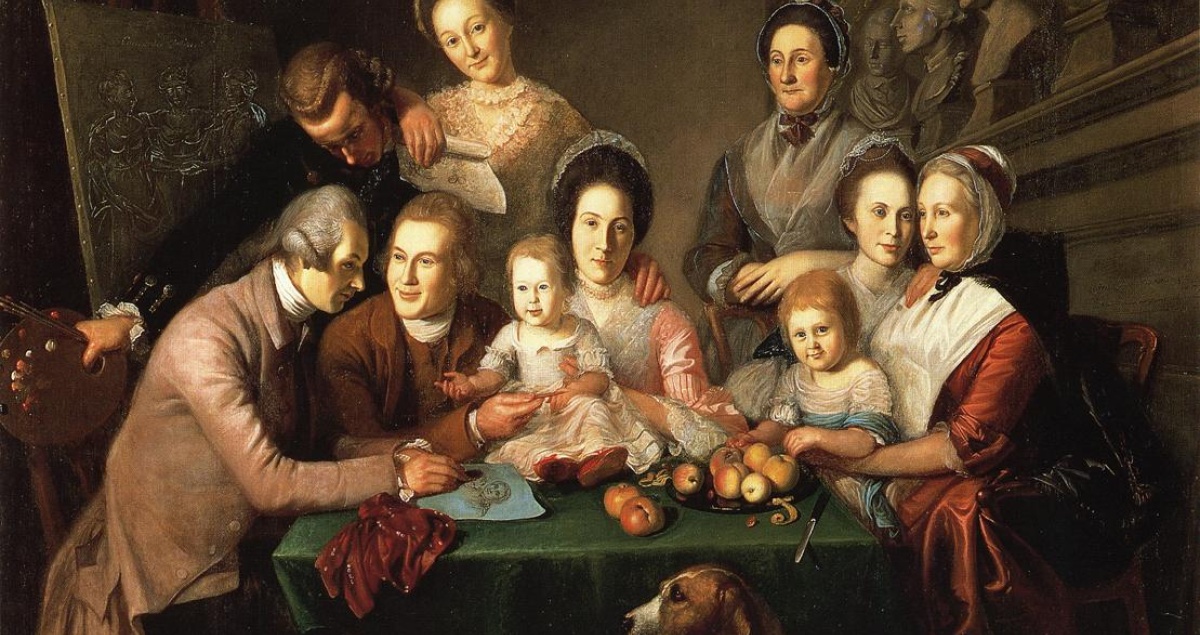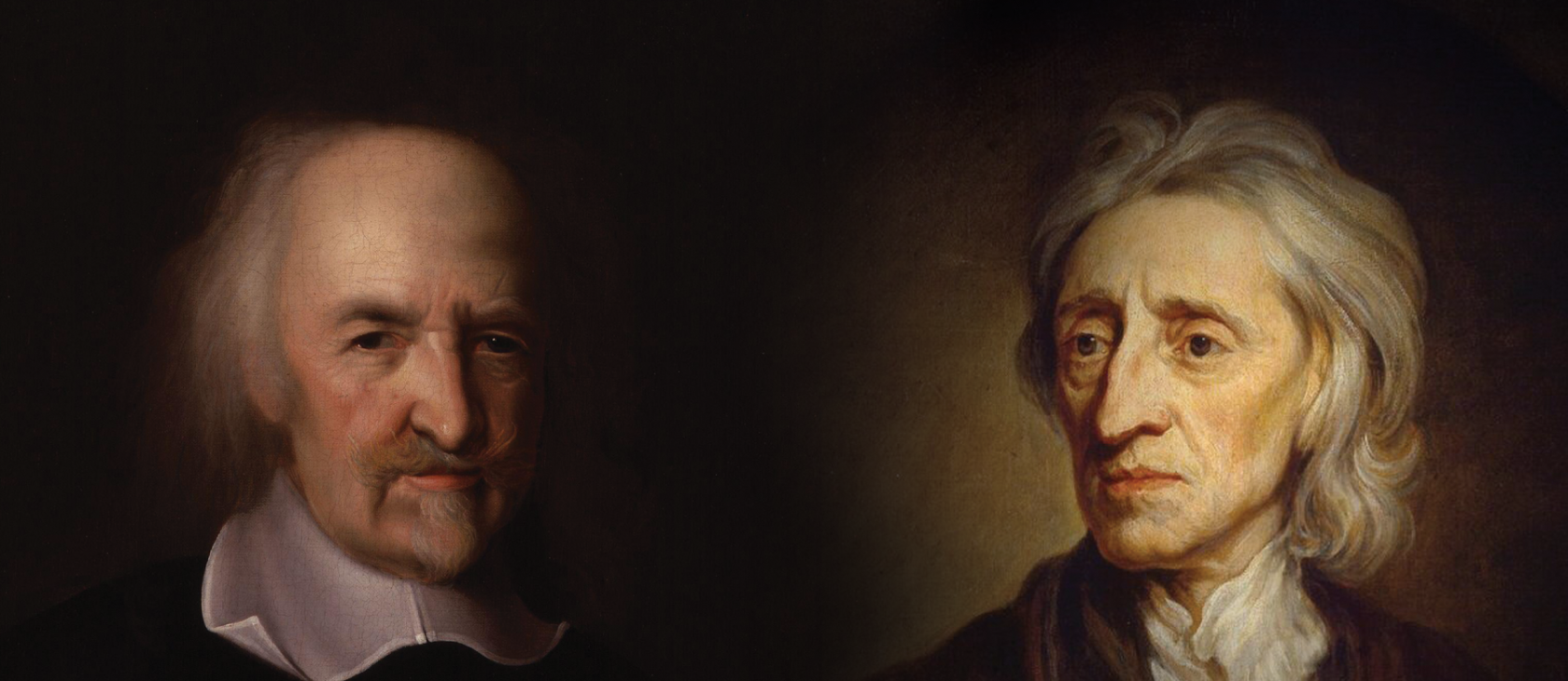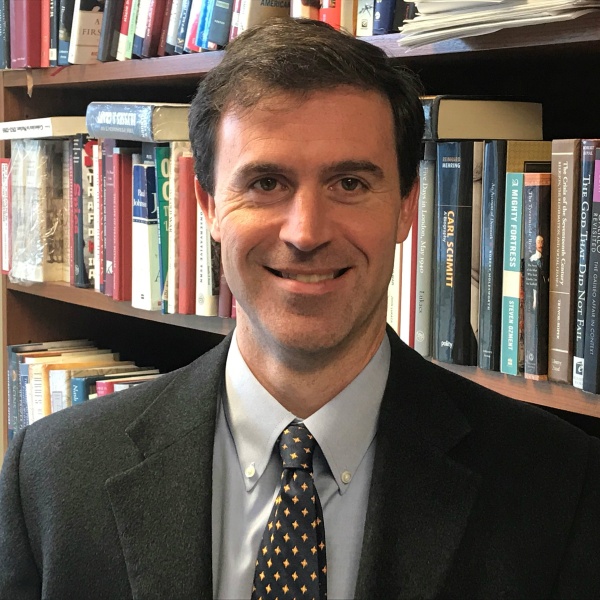In Conservatism: A Rediscovery, Yoram Hazony aims to summon American conservatives from the somnambulant, rationalistic, and individualistic fate to which their ideas have inexorably led them. He argues that this depleted condition results from a fault in their reasoning about nature, namely, the notion that one can locate universal truth and articulate it as the sound basis of a nation’s political foundation and principles. Man’s reason is weak, he notes, and prone to disagreement, with a propensity to associate its conclusions with universals, even though the evidence does not support such sweeping notions. In this way, Hazony concludes, we come to believe that our own ideas are really God’s judgments.
A new book by the author of The Virtue of Nationalism chastises American conservatives for failing family, religion, and the nation, insisting they were never anything but libertarians. But is the American future truly to be found in the English past?

By Yoram Hazony
(Regnery, 2022)
Hazony’s scourge here is “Enlightenment liberalism,” which, he argues, falsely deduces a universal politics from nature: Man is free and equal by nature, political regimes are founded to protect property and liberty, man establishes these regimes by his consent. But this liberalism is unempirical and a projection of man’s reason to create a regime of maximum individual liberty.
The main culprits, among others, are Thomas Hobbes and John Locke. Hazony argues that they mistook certain aspects of the English constitutional tradition—for example, a reverence for individual liberty—for universal properties and the highest political goods and set out to define a regime according to this type. As Enlightenment liberals, or what is the same, rationalists, they then insisted that this was the regime that mankind should now construct.
Much of the postwar conservative movement in America has been similarly defined by this Enlightenment liberalism. This was nowhere truer than in Frank Meyer’s fusionism, which became the archetype of American conservatism. Hazony concludes that fusionism was really libertarian-liberalism.
Such fusionism gave pride of place to an abstract formulation of individual liberty in the public sphere, while depending on a privatized virtue to undergird the use of that freedom. The result over time was that conservatism, really a right-liberalism, could only contend for tax cuts, small government, and originalist federal judges. The public square on culture, family, religion, and the nation defaulted to a left-liberalism that trumpeted its conception of virtue in what was a naked square, never really contested by conservatives, who just wanted their version of liberal freedom, baby. Hazony does not consider that fusionism is not soft libertarianism but a response to the constitutional order’s design. Originally it was built on localities and states as self-governing entities with the capacity for more-conservative morals legislation, while the federal government largely focuses on defense and commerce. That order has been challenged by many developments, but it can also be recovered.
This explains, according to Hazony, how conservatives could win elections and hold the White House under Ronald Reagan or No. 10 with Margaret Thatcher and still lose many consequential fights over culture. And this unthinking, ideologically libertarian conservatism had manifestly lost the political thread of victory until the nationalist conservative intervention in 2016 in the form of Brexit and Donald Trump’s presidential victory. Here was outlined a new path for the right to follow if it wanted to govern.
On one level, I do not contest, nor really should any American conservative, that our effort to conserve the best of our constitutional tradition is an ongoing reflective and discussion-based process where principles, ideas, and policies are formulated and applied to questions that are up for debate. This tradition is surely not defined by an ideology or a catechism, and attempts to do that undermine conservatism. And for conservatives to defend, reform, and secure this republic, we are called to the virtues of prudence, wisdom, and courage.
Some conservative judgments have omitted one or more of those virtues. In one respect, Hazony is correct: Conservatives in America and the U.K. had deemphasized the nation as the crucial political framework, and, yes, Brexit and Trump corrected matters. But it is something of a tale to conclude that Frank Meyer’s fusionism left conservatives unable to defend culture and morality from the egalitarian-dipped arrows of the progressives. Hazony takes matters too far.
The author’s dichotomies aim to separate the children of light from the children of the confused within American conservatism. Readers of Hazony’s earlier book The Virtue of Nationalism remember its deployment of empires and nations as the exclusive measure for political forms, omitting regimes like republicanism and how this spirit crucially shapes politics. Hazony judges conservatism in America to be primarily a contest between a godlike reason that produces a deracinated individualism and a neglected traditionalism and its empirical defense that undergirds God, family, and country.
Hazony needs to remember that not all Enlightenment thinkers reasoned the same. Which Enlightenment we’re talking about matters a great deal. The Scottish Enlightenment had tremendous influence on many of the American Founders, but nowhere does it contain the abstractions and philosophic nominalism of Locke or Hobbes. Further, Hazony does not engage with the classical measure of reason and the practical goods it defends. The second paragraph of the Declaration of Independence reasons from universal goods to particular problems that the Continental Congress confronted. The Founders were caught having to articulate the good and the true and fasten it to discrete situations.

Hazony rightfully defends family, religion, and nation, and the last section of the book is moving in this regard. But it is also proffered as the authentic account of family and community. There is certainly much to commend in Hazony’s account of family life and the building of community. However, the suggestion here and throughout the book is that American conservatism never really attempted to defend these goods because it is theoretically incapable of so doing.
Hazony writes as if the following well-known conservatives did not actually exist: Phyllis Schlafly, a leader of the pro-life movement and the long-democratically successful attempt to preserve marriage as a union of man and woman until Obergefell v. Hodges; Father Richard John Neuhaus and his First Things quest to put faith and classical natural law back into politics; the collection of groups and activists that formed the religious right and achieved remarkable victories in the 1994 congressional elections, welfare reform, and, yes, the confirmation of originalist judges at all levels of the federal court system. I could go on.
I also wonder how much of what I describe would fall afoul of Meyer’s own prudential political judgments. Some of it, perhaps, but much of it would find favor with the fusionist architect to whom Hazony attributes a Svengali-like hold over the conservative mind.
A more balanced look at conservatism would find that, yes, we lost a revolution despite very strong efforts to the contrary. That defeat enthroned same-sex marriage and, for the time being, has disconnected sexuality from marriage and children where it once held together tightly. Of course, the left’s victory on same sex marriage was possible because of its prior victory in the heterosexual sexual revolution that infused divorce, childlessness, casual sex, and pornography into American life.
The fallout from those revolutions continues, blanketing to one degree or another virtually every Western country. Perhaps the contrast is that in America, a viable alternative political movement formed to combat it and even now continues to build ideas and institutions that could be called upon in a country incurring increasingly higher levels of stress from its sexual “liberation.”
In 2015, something happened—something that Donald Trump clearly understood and gave voice to. The culture wars changed. The left went from libertarian manqué with its sex liberation victories to legal enforcer commanding that Americans recognize and celebrate its triumph. Months after Justice Anthony Kennedy’s ink was dry on Obergefell v. Hodges, we were witness to the transgender revolution and its demand for universal bathroom access. Those claims are now even more aggressive, as biological males who prefer to be called women now demand that they should be allowed to compete in women’s sports. Many of the highest voices in the land lend their credibility to such reality-altering judgments. Do I even need to repeat what’s happened in public schools, starting with LGBTQ pedagogy in grades as early as kindergarten?
We also know that the moment has now turned against the universal victories of the LGBTQ coalition, along with the broader identity politics movement. Americans are resisting being indoctrinated, most particularly in the enforced lessons for their children in schools. Victory against this Marxist ideological front is not guaranteed, but the battle has been joined. Kudos to many of the national conservatives on this front for their effective opposition. And this may prove to be the thread that we pull that unravels much of the errant thinking about sexuality that has guided the West for decades.
But to take up Hazony’s argument, if much of postwar conservatism is a tale of misguided thinking that ended in enthroning liberalism, where should the conscientious conservative look if he wants to defend religion, family, and country? The answer, he concludes, is Anglo-American conservatism. This conservatism is built on historical empiricism, the nation, the biblical tradition, common law, Crown or executive power limited by representative assemblies, individual liberties, and government support for religion. As lists go, it’s rather comprehensive and generally agreeable to American conservatives. Hazony points us to its most significant English statesmen: Sir John Fortescue, Richard Hooker, Sir Edward Coke, John Selden, Matthew Hale, Edward Hyde (Earl of Clarendon), and Edmund Burke. Another impressive list. One might wonder: Why did we separate from the English? Hazony does not accurately grapple with the spirit of republicanism, which is the soul of the American regime and shapes its citizens.

Hazony observes that John Selden is the quintessential conservative of this type. In an instructive section of the book, he argues that the 17th-century contest for the English constitution exemplifies Anglo-American conservatism, and Selden’s contributions are excellent specimens of the type. This struggle was waged against “(1) the political absolutism of the Stuart monarchs, (2) the growing strength of the Puritan revolutionaries, and (3) the first advocates of what we know as Enlightenment rationalism.”
Selden manfully defended the English constitution against its usurpation by King James Stuart, who sought to rule apart from Parliament. James claimed that he ruled by divine right. In response Selden helped draft and pass the fundamental 1628 Petition of Right, which defended the liberty of English subjects in the face of James’ lawless rule.
The Petition of Right established “no taxation without representation” and the forms of rights that would find expression in the Third, Fourth, Fifth, Sixth, and Seventh Amendments of the U.S. Bill of Rights. These were affirmed and established by Selden and others as ancient constitutional freedoms. Coke even proclaimed that freedom of speech was “an ancient custom of Parliament” in the 1590s.
Hazony’s gloss on these heroic efforts is that Selden and Coke “risked everything to defend the same liberties that we ourselves hold dear from the encroachment of an increasingly authoritarian regime. But they did not do so in the name of liberal doctrines of universal reason, natural rights, and ‘self-evident’ truths. They explicitly rejected these doctrines because they were conservatives, not liberals.”
Hazony underscores Selden’s opposition to unaided reason because the “unrestricted use of pure and simple reason” leads to wild results that are “intrinsically inconsistent and dissimilar among men.” There is no universal form of reason that can be used to build politics on. That is, according to Selden, what “may be most convenient or just in one state may be unjust and inconvenient in another, and yet both excellently as well framed as governed.”
Reflection on these passages from Selden should lead to as many questions as it does nods in agreement. What does it mean to be “as well framed as governed”? What does “unjust and inconvenient” mean? What criteria do you use to make the determination?
Selden, we learn, leans on pragmatism here, per Hazony. Pragmatist Selden: “The way to find out the Truth is by others’ mistakings: For if I [wish] to go to such [and such] a place, and one had gone before me on the right-hand, and he was out, [while] another had gone on the left-hand, and he was out, this would direct me to keep the middle way that peradventure would bring me to the place I desired to go.”
Ultimately, Hazony will follow Selden’s lead and locate scripture as that which provides the ethical fundament of Anglo-American conservatism.
We call that pragmatism, and it has one big problem. It does not work. Of course Selden finally says we do rely on higher law to know “what is truly best.” And that source of the truly best is the Talmud, which Selden and Hazony also call “natural law.” Ultimately, Hazony will follow Selden’s lead and locate scripture as that which provides the ethical fundament of Anglo-American conservatism. But turnaround being fair play, we might note that this biblical positivism leads one to supposedly the same problems that a reliance on reason alone produces: disagreements, lots of them.
Did the English ever have a political falling out with both sides contending for their biblical interpretations as correct? The English Civil War. What about the Americans and our biblical disputes, which surely marked how Protestants understood the morality or immorality of slavery? The scripture debates over slavery in antebellum America are voluminous, heated, and endless. In certain cases, they ended in fractured denominations.
What Hazony needs should be apparent to most classical students of faith and reason: the West’s most profound syntheses of how humans have tried to understand the truth about God, reality, and themselves. He is everywhere in need of it, but Hazony seems cut off from obtaining it.
In this book, as in his earlier The Virtue of Nationalism, Hazony uses rigid dichotomies that produce powerful political narratives but less than robust understanding of the political categories under discussion. One example manifestly on display is ignoring or misunderstanding classical reasoning and natural law apart from modern Enlightenment reason and natural rights. And we can go deeper and show that natural law found a home in the medieval constitutionalism of the English.
The classical natural law and its participated theonomy had many of its ethical precepts specified by medieval law and formulated into its canons. One study that readers might consult is Robert Reilly’s America on Trial, which sets forth the medieval roots of constitutionalism, showing how doctrines of separation of powers, church and state, the executive and representatives, consent of the governed, and popular sovereignty emerge from canonical law and natural law reasoning. They are not merely derivations from scripture but a natural law participating in divine law and forming ethical norms that were drawn on by English constitutional lawyers in the formation of governing law.
Finally, even some of the authorities Hazony enlists for empirical traditionalist conservatism understood natural law quite well. No less an authority than Richard Hooker, cited favorably by Hazony, observed that “the general and perpetual voice of men is as the sentence of God himself. For that which all men have at all times learned, Nature herself must needs have taught: and God being the author of Nature; her voice is but His instrument.”
The problem becomes how these principles of natural law and their reception by common law and constitutional thinking will be dashed in early modernity by many of the thinkers Hazony alludes to unfavorably: Hobbes, Locke, Sir Robert Filmer, and many more. But the rehabilitation of American constitutionalism by conservatism in a nearly post-constitutional age will require more than biblical positivism and dismissing “Enlightenment liberalism.”
Rather, we require a full engagement with the deep resources of constitutional thinking rooted in metaphysics, natural law, and God. John Adams stated this well: “that all men by nature are equal; that kings are but ministers of the people; that their authority is delegated to them by the people for their good; and that they have a right to resume it, and place it in other hands, or keep it themselves, whenever it is made use of to oppress them. ... These are what are called revolution principles. They are the principles of Aristotle and Plato, of Livy and Cicero, and Sidney, Harrington, and Locke; the principles of nature and eternal reason; the principles on which the whole government over us now stands.”




